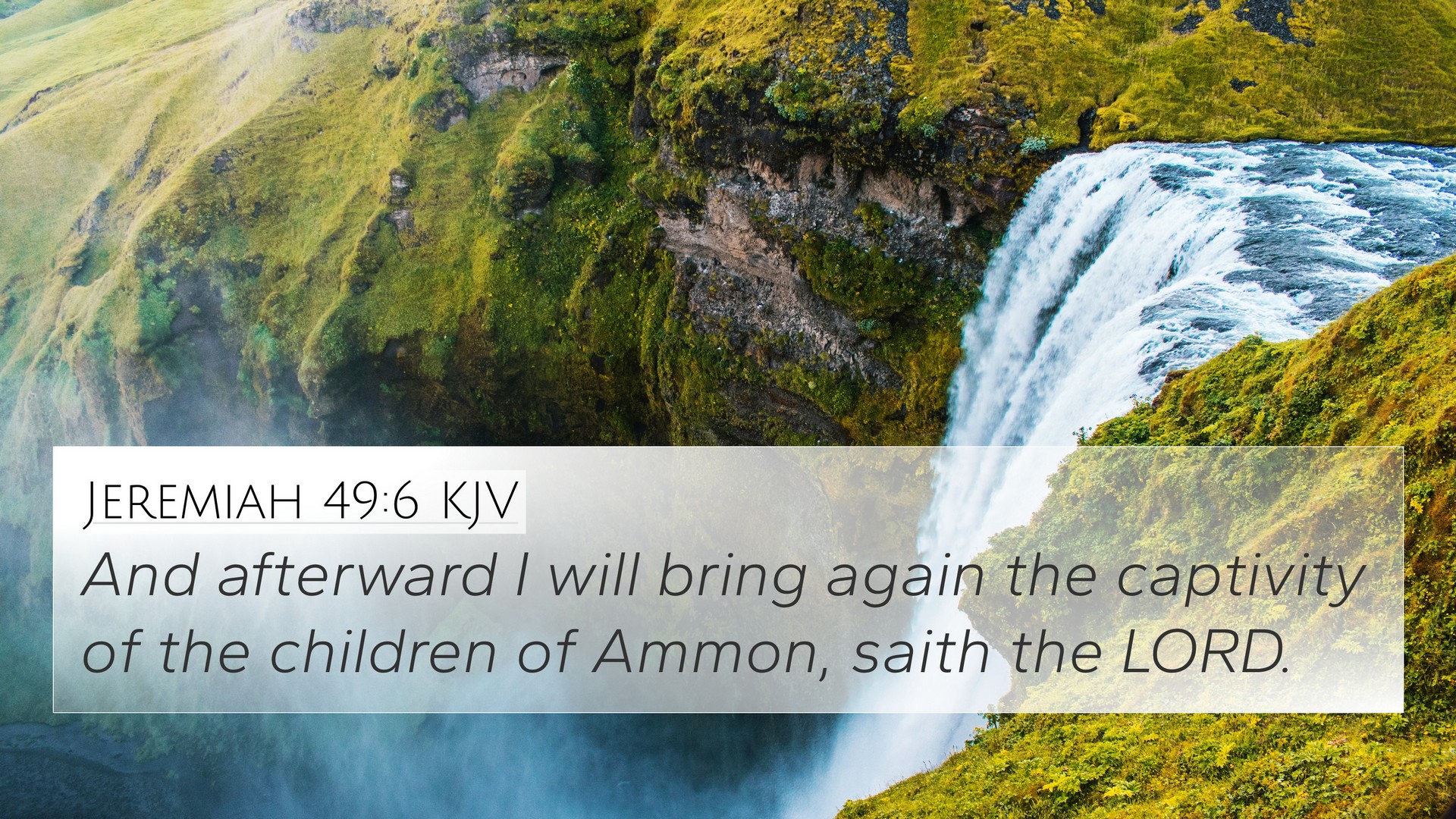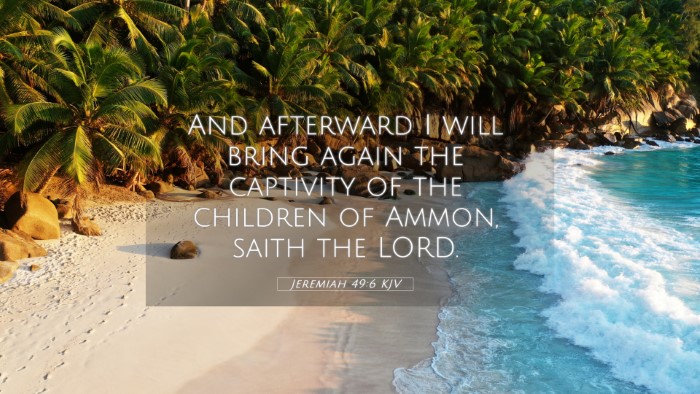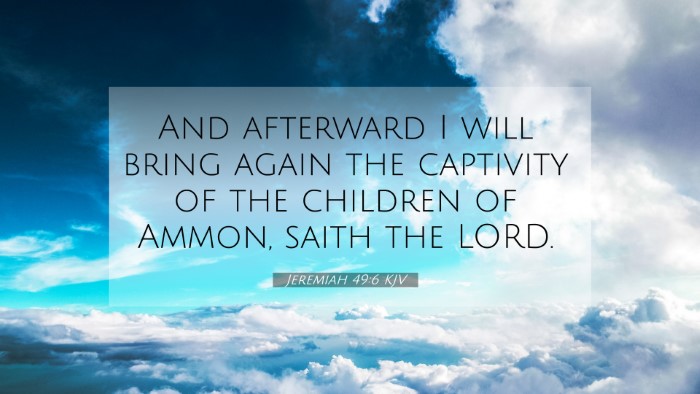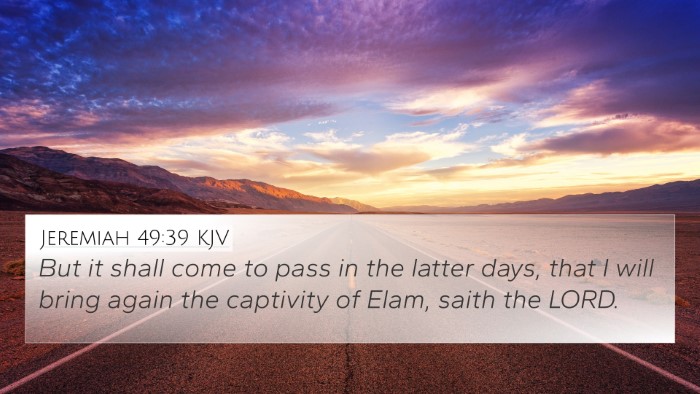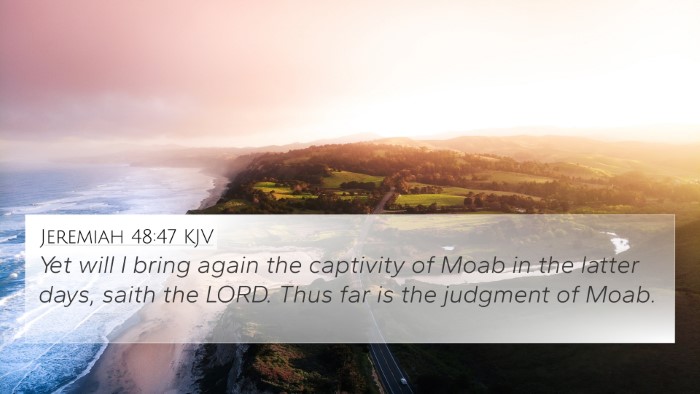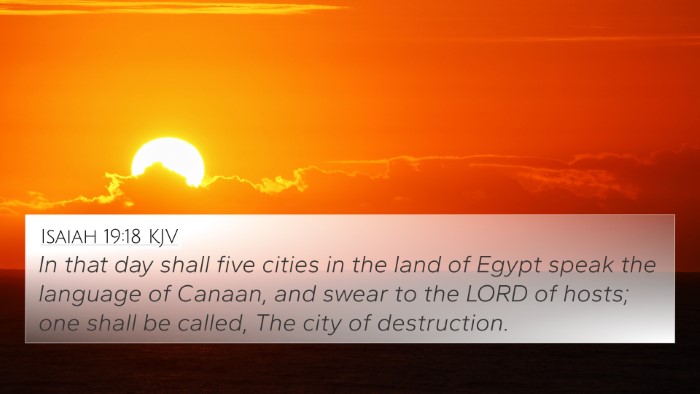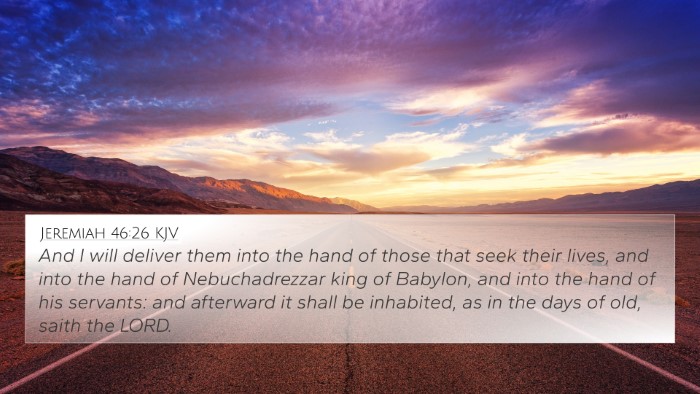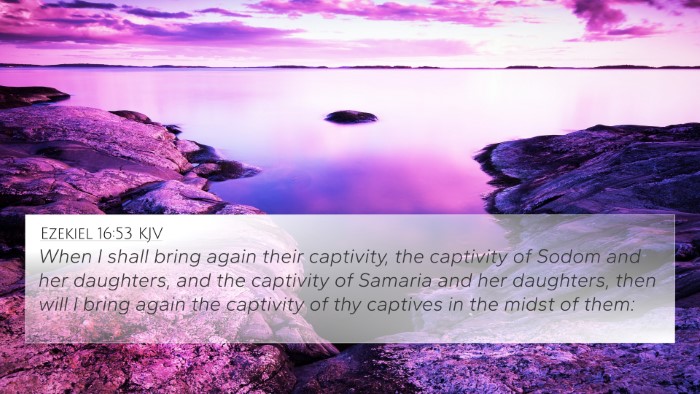Understanding Jeremiah 49:6
Context: The book of Jeremiah is filled with prophecies concerning the judgment and restoration of Israel and surrounding nations. In Jeremiah 49:6, the prophet speaks to the fate of the children of Ammon, emphasizing God's mercy amidst judgment.
Verse: "But afterward I will restore the fortunes of the Ammonites,” says the Lord." - Jeremiah 49:6 (NIV)
Verse Meaning and Insights
Jeremiah 49:6 conveys a message of hope and restoration after a period of judgment for the Ammonites. It illustrates God’s plan not only to punish but also to redeem. Here are some insights based on public domain commentaries:
-
Matthew Henry:
Henry emphasizes the significance of God's restoration. He notes that despite Ammon's unfaithfulness, God stretches His grace towards them after their punishment, highlighting the divine principle that God’s love can restore even those who strayed.
-
Albert Barnes:
Barnes discusses the historical implications of this promise. He points out that God's restoration of Ammon reflects His overarching purpose for all nations—a plan that includes mercy and redemption following judgment.
-
Adam Clarke:
Clarke notes that this verse serves as an assurance that God is not only a God of justice but also of grace. His commentary suggests that God's restoration signifies a new beginning, stressing the importance of repentance before receiving mercy.
Cross-References and Thematic Connections
This verse connects with several themes within the Bible regarding judgment, mercy, and restoration. The following cross-references deepen understanding:
- Isaiah 11:10: “In that day the Root of Jesse will stand as a banner for the peoples; the nations will rally to him, and his resting place will be glorious.” - Highlights God’s plan for all nations, similar to the promise of restoration in Jeremiah.
- Ezekiel 25:7: “Therefore, I am going to stretch out my hand against you and give you as plunder to the nations…” - Acknowledges Divine judgment on nations, parallel to the fate of Ammon.
- Romans 11:32: “For God has bound everyone over to disobedience so that he may have mercy on them all.” - Highlights God’s mercy after judgment, akin to the restoration of Ammon.
- Deuteronomy 30:3: “Then the LORD your God will restore your fortunes and have compassion on you…” - A promise of restoration that reflects God’s enduring mercy.
- Joel 2:25-26: “I will repay you for the years the locusts have eaten…” - A promise of restoration similar to that emphasized in Jeremiah 49:6.
- Zephaniah 3:19: “At that time I will deal with all who oppressed you; I will rescue the lame and gather the exiles…” - An assurance of God’s intervention and restoration.
- Micah 7:18-19: “Who is a God like you, who pardons sin and forgives the transgression…” - Reflects God’s character of mercy after judgment.
Conclusion
In conclusion, Jeremiah 49:6 serves as a profound reminder of God's faithfulness and willingness to restore even those deemed lost. As noted in various commentaries and echoed across multiple scriptural references, God's plan is not solely focused on judgment, but also on redemption and mercy, showcasing the transformative power of grace.
Understanding the cross-referencing between biblical texts, such as the thematic connections in Jeremiah 49:6 with other prophetic writings, enhances our comprehension of God’s overarching narrative throughout Scripture. Tools for Bible cross-referencing can provide deeper engagement with these themes, helping believers find hope and guidance in the promises of restoration.
